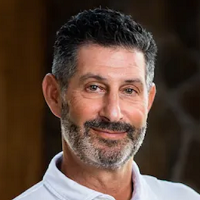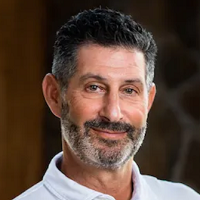A Letter of Wishes: No Legal Power But Powerful Nonetheless
A letter of wishes lets you explain, in plain language, your intent behind your estate documents, potentially heading off any misunderstandings or disputes.


Profit and prosper with the best of Kiplinger's advice on investing, taxes, retirement, personal finance and much more. Delivered daily. Enter your email in the box and click Sign Me Up.
You are now subscribed
Your newsletter sign-up was successful
Want to add more newsletters?

Delivered daily
Kiplinger Today
Profit and prosper with the best of Kiplinger's advice on investing, taxes, retirement, personal finance and much more delivered daily. Smart money moves start here.

Sent five days a week
Kiplinger A Step Ahead
Get practical help to make better financial decisions in your everyday life, from spending to savings on top deals.

Delivered daily
Kiplinger Closing Bell
Get today's biggest financial and investing headlines delivered to your inbox every day the U.S. stock market is open.

Sent twice a week
Kiplinger Adviser Intel
Financial pros across the country share best practices and fresh tactics to preserve and grow your wealth.

Delivered weekly
Kiplinger Tax Tips
Trim your federal and state tax bills with practical tax-planning and tax-cutting strategies.

Sent twice a week
Kiplinger Retirement Tips
Your twice-a-week guide to planning and enjoying a financially secure and richly rewarding retirement

Sent bimonthly.
Kiplinger Adviser Angle
Insights for advisers, wealth managers and other financial professionals.

Sent twice a week
Kiplinger Investing Weekly
Your twice-a-week roundup of promising stocks, funds, companies and industries you should consider, ones you should avoid, and why.

Sent weekly for six weeks
Kiplinger Invest for Retirement
Your step-by-step six-part series on how to invest for retirement, from devising a successful strategy to exactly which investments to choose.
Over the years, I’ve seen many estate plans that have been well crafted and tax-optimized fail when it comes to the one thing that matters most: leaving heirs better off for their inheritance.
Contributing to this is poor or little guidance for the trustees and little thought given to the damage that sudden wealth can cause. You need not look further than the statistics of lottery winners to see the failures caused by unexpected and rapid access to money.
What do you want to achieve with what you leave behind? And how can you prepare your trustees and heirs for this responsibility?
From just $107.88 $24.99 for Kiplinger Personal Finance
Become a smarter, better informed investor. Subscribe from just $107.88 $24.99, plus get up to 4 Special Issues

Sign up for Kiplinger’s Free Newsletters
Profit and prosper with the best of expert advice on investing, taxes, retirement, personal finance and more - straight to your e-mail.
Profit and prosper with the best of expert advice - straight to your e-mail.
Generational wealth is a magnifying glass. It can amplify the best in us. It can also exaggerate fault lines of misunderstanding and lead to resentment.
Most parents want the same thing for their children: to be happy and healthy and to love one another. The problem is that your intentions are very hard to push through legal trust documents and emerge on the other side in a way that is clear for a trustee to interpret. These documents can be rigidly defined, costly to change and difficult for a layperson to understand.
But it doesn’t have to be this way. There is actually a little-known “cheat code” that anyone can use to restore flexibility to estate planning and communicate in a way you and your loved ones can all understand. It’s called a letter of wishes.
What a letter of wishes can do
In the simplest terms, a letter of wishes is a statement of the intention behind the decisions you make in your estate plans. It is not a legally binding document, but its power lies in its simplicity. You can write, in plain language, the outcomes you want to see for your heirs. It allows you to speak to the “why” behind your plan in a way that a document full of legalese might not be able to capture.
For example, your trust documents might say a portion of a beneficiary’s funds are to be used for education. However, the trustee needs to decide what “counts” as education. Would trade school count? What about art classes, violin lessons or studies abroad? Your letter of wishes can answer these questions for them. Without it, the trustee has to make a judgment call, creating a potential trigger point for a bitter dispute over the use of your inheritance.
Moreover, dividing your assets among your three children may seem fair and equitable, but what happens if one child has one grandchild, and one has 10 grandchildren? Are you comfortable with one grandchild inheriting 10 times what the other 10 grandchildren inherit? Or is your intent to treat them all equally, providing funds for the things important to you, such as education, some help with housing and enough to do something, but not so much that they can do nothing? Does a stipend make more sense for all of your heirs rather than making your estate planning problem their estate planning problem?
There is no standardized format for a letter of wishes, but the households I have worked with tend to use a few common elements in their letters. You can state your overall intent for using trust funds and what is most important. You can explain the cadence of distribution to beneficiaries or offer guidance to trustees for large distributions meant for specific purposes, like starting a business or a buying a home. You can clarify whether certain beneficiaries should be considered priorities over others.
Giving context to your legacy
Most of all, you can give context to your legacy. If your beneficiaries are treated differently in your estate documents, they could perceive that as cruel or capricious. A letter of wishes lets you set the record straight. In a very real way, it may be your last opportunity to do so. After you’re gone, the only thing that your family and your trustee have to guide the discretionary matters of your estate is what you set in place while you still had time.
Put another way, a trust document will tell your inheritors the terms and conditions of your estate. A letter of wishes can say to them, “Don’t forget where you came from.”
And because a letter of wishes is not a legal document, it is not subject to the same legal costs to draft and strictures as the rest of your estate documentation. You can update a letter of wishes far more quickly and easily and with less hassle than formal trust documents.
No matter how much or little we leave behind, we all want our beneficiaries to live well and be happy. A letter of wishes is one of the best tools to prevent your estate from becoming the flashpoint of bitter disputes or lifelong divides among your heirs. It allows you to leave behind a purpose, not just assets.
Related Content
- Five Estate Planning Things You Need to Do Now
- To Avoid Probate, Use Trusts for Estate Planning
- When Estate Planning, Don’t Let Mistakes Thwart Your Wishes
- Estate Planning Tips: How to Pick POAs, Health Surrogates and Trustees
- Five Common Estate Planning Mistakes to Avoid
Profit and prosper with the best of Kiplinger's advice on investing, taxes, retirement, personal finance and much more. Delivered daily. Enter your email in the box and click Sign Me Up.

Steve Lockshin is an entrepreneur and financial adviser. He is a Principal of AdvicePeriod and a co-founder of estate planning software firm Vanilla. Steve founded Vanilla with the mission of empowering advisors to deliver more impactful, client-centric estate planning advice. By providing intuitive tools to create, manage and visualize estate plans, Vanilla enables advisers to better demonstrate their value and forge deeper relationships with clients.
-
 Quiz: Do You Know How to Avoid the "Medigap Trap?"
Quiz: Do You Know How to Avoid the "Medigap Trap?"Quiz Test your basic knowledge of the "Medigap Trap" in our quick quiz.
-
 5 Top Tax-Efficient Mutual Funds for Smarter Investing
5 Top Tax-Efficient Mutual Funds for Smarter InvestingMutual funds are many things, but "tax-friendly" usually isn't one of them. These are the exceptions.
-
 AI Sparks Existential Crisis for Software Stocks
AI Sparks Existential Crisis for Software StocksThe Kiplinger Letter Fears that SaaS subscription software could be rendered obsolete by artificial intelligence make investors jittery.
-
 Social Security Break-Even Math Is Helpful, But Don't Let It Dictate When You'll File
Social Security Break-Even Math Is Helpful, But Don't Let It Dictate When You'll FileYour Social Security break-even age tells you how long you'd need to live for delaying to pay off, but shouldn't be the sole basis for deciding when to claim.
-
 I'm an Opportunity Zone Pro: This Is How to Deliver Roth-Like Tax-Free Growth (Without Contribution Limits)
I'm an Opportunity Zone Pro: This Is How to Deliver Roth-Like Tax-Free Growth (Without Contribution Limits)Investors who combine Roth IRAs, the gold standard of tax-free savings, with qualified opportunity funds could enjoy decades of tax-free growth.
-
 One of the Most Powerful Wealth-Building Moves a Woman Can Make: A Midcareer Pivot
One of the Most Powerful Wealth-Building Moves a Woman Can Make: A Midcareer PivotIf it feels like you can't sustain what you're doing for the next 20 years, it's time for an honest look at what's draining you and what energizes you.
-
 I'm a Wealth Adviser Obsessed With Mahjong: Here Are 8 Ways It Can Teach Us How to Manage Our Money
I'm a Wealth Adviser Obsessed With Mahjong: Here Are 8 Ways It Can Teach Us How to Manage Our MoneyThis increasingly popular Chinese game can teach us not only how to help manage our money but also how important it is to connect with other people.
-
 Looking for a Financial Book That Won't Put Your Young Adult to Sleep? This One Makes 'Cents'
Looking for a Financial Book That Won't Put Your Young Adult to Sleep? This One Makes 'Cents'"Wealth Your Way" by Cosmo DeStefano offers a highly accessible guide for young adults and their parents on building wealth through simple, consistent habits.
-
 Global Uncertainty Has Investors Running Scared: This Is How Advisers Can Reassure Them
Global Uncertainty Has Investors Running Scared: This Is How Advisers Can Reassure ThemHow can advisers reassure clients nervous about their plans in an increasingly complex and rapidly changing world? This conversational framework provides the key.
-
 I'm a Real Estate Investing Pro: This Is How to Use 1031 Exchanges to Scale Up Your Real Estate Empire
I'm a Real Estate Investing Pro: This Is How to Use 1031 Exchanges to Scale Up Your Real Estate EmpireSmall rental properties can be excellent investments, but you can use 1031 exchanges to transition to commercial real estate for bigger wealth-building.
-
 Should You Jump on the Roth Conversion Bandwagon? A Financial Adviser Weighs In
Should You Jump on the Roth Conversion Bandwagon? A Financial Adviser Weighs InRoth conversions are all the rage, but what works well for one household can cause financial strain for another. This is what you should consider before moving ahead.